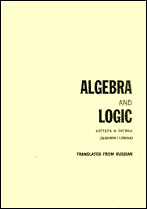|
This article is cited in 17 scientific papers (total in 17 papers)
Universal theories for rigid soluble groups
A. G. Myasnikova, N. S. Romanovskiibc
a Schaefer School of Engineering and Science, Department of Mathematical Sciences, Stevens Institute of Technology, Hoboken, NJ, USA
b Sobolev Institute of Mathematics, Siberian Branch of the Russian Academy of Sciences, Novosibirsk, Russia
c Novosibirsk State University, Novosibirsk, Russia
Abstract:
A group is said to be $p$-rigid, where $p$ is a natural number, if it has a normal series of the form
$$
G=G_1>G_2>\dots>G_p>G_{p+1}=1,
$$
whose quotients $G_i/G_{i+1}$ are Abelian and are torsion free when treated as $\mathbb Z[G/G_i]$-modules. Examples of rigid groups are free soluble groups. We point out a recursive system of universal axioms distinguishing $p$-rigid groups in the class of $p$-soluble groups. It is proved that if $F$ is a free $p$-soluble group, $G$ is an arbitrary $p$-rigid group, and $W$ is an iterated wreath product of $p$ infinite cyclic groups, then $\forall$-theories for these groups satisfy the inclusions
$$
\mathcal A(F)\supseteq\mathcal A(G)\supseteq\mathcal A(W).
$$
We construct an $\exists$-axiom distinguishing among $p$-rigid groups those that are universally equivalent to $W$. An arbitrary $p$-rigid group embeds in a divisible decomposed $p$-rigid group $M=M(\alpha_ 1,\dots,\alpha_ p)$. The latter group factors into a semidirect product of Abelian groups $A_1A_2\dots A_p$, in which case every quotient $M_i/M_{i+1}$ of its rigid series is isomorphic to $A_i$ and is a divisible module of rank $\alpha_i$ over a ring $\mathbb Z[M/M_i]$. We specify a recursive system of axioms distinguishing among $M$-groups those that are Muniversally equivalent to $M$. As a consequence, it is stated that the universal theory of $M$ with constants in $M$ is decidable. By contrast, the universal theory of $W$ with constants is undecidable.
Keywords:
$p$-rigid group, universal theory of group, decidable theory.
Received: 01.03.2011
Citation:
A. G. Myasnikov, N. S. Romanovskii, “Universal theories for rigid soluble groups”, Algebra Logika, 50:6 (2011), 802–821; Algebra and Logic, 50:6 (2012), 539–552
Linking options:
https://www.mathnet.ru/eng/al517 https://www.mathnet.ru/eng/al/v50/i6/p802
|


|





 Contact us:
Contact us: Terms of Use
Terms of Use
 Registration to the website
Registration to the website Logotypes
Logotypes








 Citation in format
Citation in format 
